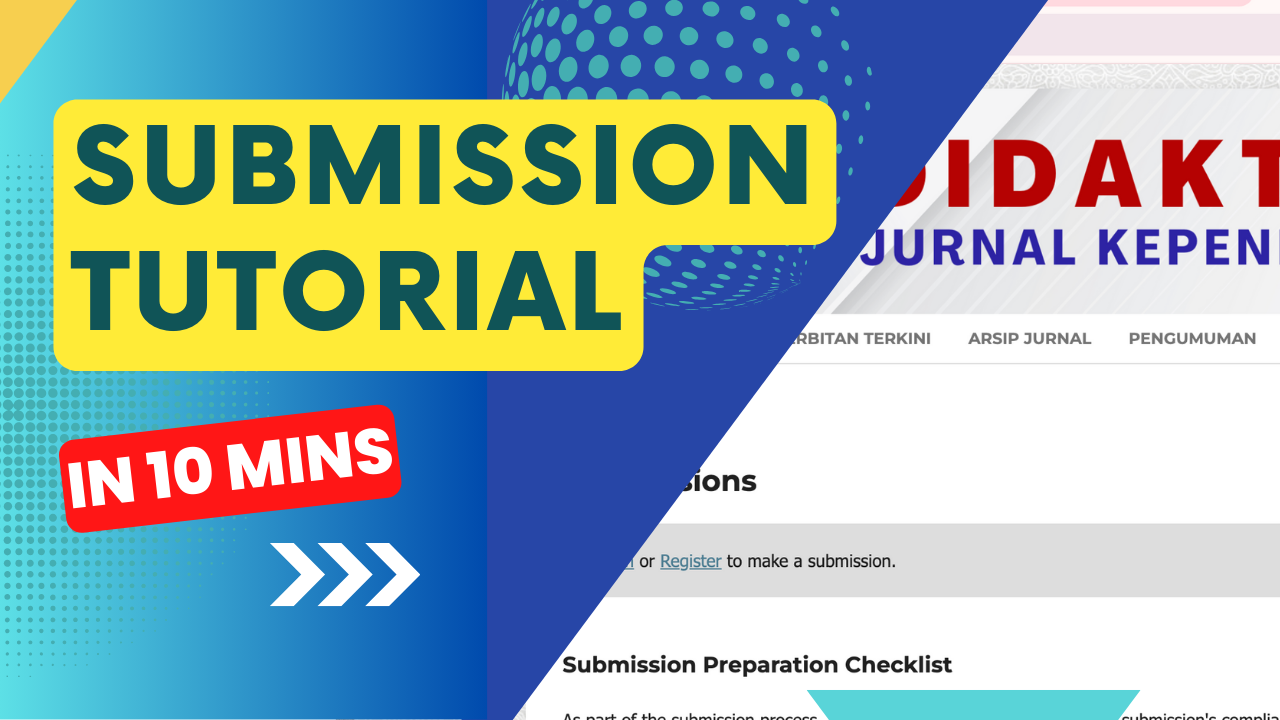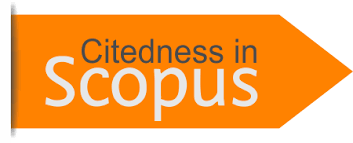Theory and Practice in Implementing the Project for Strengthening the Profile of Pancasila Students in Madrasas as a Learning Recovery Effort
Abstract
This research is entitled Theory and Practice in Implementing the Project for Strengthening the Profile of Pancasila Students (P5) in Madrasas as a Learning Recovery Effort. This research aims to determine how implementing the Project for Strengthening the Profile of Pancasila Students relates to the learning recovery strategy and the supporting and inhibiting factors in implementing the project to strengthen the profile of Pancasila students regarding the learning recovery strategy. The theory used in this research is the theory put forward by George C. Edward III that four variables influence the successful implementation of a policy: 1. Communication; 2. Resources; 3. Disposition; and 4. Bureaucratic structure. With the case study method used, the results were obtained that: 1. Implementation of the Project for Strengthening the Pancasila Student Profile can be considered as a learning recovery effort.
Metrics
References
Edward III, G. C. (1984). Public Policy Implementing. In Literary and Linguistic Computing.
Evans, D. K., & Popova, A. (2016). What really works to improve learning in developing countries? An analysis of divergent findings in systematic reviews. World Bank Research Observer. https://doi.org/10.1093/wbro/lkw004
Famelis, P., Katsikas, G. P., Katopodis, V., Natalino, C., Renom, L. G., Martinez, R., Vilalta, R., Klonidis, D., Monti, P., King, D., & Farrel, A. (2023). P5: Event-driven Policy Framework for P4-based Traffic Engineering. 2023 IEEE 24th International Conference on High Performance Switching and Routing (HPSR), 1–3. https://doi.org/10.1109/HPSR57248.2023.10148012
Hang, N. T. (2021). Universal Education Development to Enhance the Quality of HUman Resources in the Context of Digital Transformation and Industrial Revolution 4.0. The USV Annals of Economics and Public Administration.
Harahap, F. M., Ulinniam, Sitinjak, L., Urath, S., & Alfiyanto, A. (2022). Pelaksanaan Pembelajaran Daring pada Masa Pandemi Covid-19 di SMPN 23 Palembang. Pendidikan Tambusai, 06(02), 8501–8508. https://doi.org/https://doi.org/10.31004/jptam.v6i2.3697
Haug, N., Geyrhofer, L., Londei, A., Dervic, E., Desvars-Larrive, A., Loreto, V., Pinior, B., Thurner, S., & Klimek, P. (2020). Ranking the effectiveness of worldwide COVID-19 government interventions. Nature Human Behaviour. https://doi.org/10.1038/s41562-020-01009-0
Hewi, L., & Shaleh, M. (2020). Refleksi Hasil PISA (The Programme For International Student Assesment): Upaya Perbaikan Bertumpu Pada Pendidikan Anak Usia Dini). Jurnal Golden Age, 4(01). https://doi.org/10.29408/jga.v4i01.2018
Indah Pratiwi. (2019). Efek Program PISA Terhadap Kurikulum Di Indonesia. Jurnal Pendidikan Dan Kebudayaan.
Khan, B. M., Reid, N., & Stergiopoulos, V. (2022). Advancing recovery education for people experiencing housing instability: A qualitative analysis of service user and provider perspectives in Canada. Health & Social Care in the Community, 30(4), 1541–1549. https://doi.org/10.1111/hsc.13484
Mariyani, M., & Alfansyur, A. (2021). Strategi Guru PPKn dalam Pelaksanaan Pembelajaran Jarak Jauh Selama Masa Pandemi Covid-19 di Pali, Sumatera Selatan. PINUS: Jurnal Penelitian Inovasi Pembelajaran. https://doi.org/10.29407/pn.v6i2.15024
Maryati, S., Lestarika, L., Idi, A., & Tri Samiha, Y. (2023). Madrasah As an Institution of Islamic Education and Social Change. Jurnal Konseling Pendidikan Islam, 4(2), 317–326. https://doi.org/10.32806/jkpi.v4i2.11
Mustafiyanti, M., Putri, M. P., Muyassaroh, M., Noviani, D., & Dylan, M. (2023). A Form of Independent Curriculum, an Overview of Independent Learning at State Elementary School 05 Gelumbang Muaraenim. Pengabdian: Jurnal Abdimas, 1(2), 82–96. https://doi.org/10.55849/abdimas.v1i2.185
Pan, Z., & Zhang, K. (2022). Analysis of Policy Change in the Implementation Process. Scientific and Social Research, 4(6), 13–17. https://doi.org/10.26689/ssr.v4i6.3986
Perkins, S. (2010). Identifying obstacles. Nature Climate Change. https://doi.org/10.1038/nclimate1027
Puspitasari, R., Budimansyah, D., Sapriya, S., & Rahmat, R. (2023). Internalizing the Character Value of Caring for the Environment Through the Project to Strengthen the Profile of Pancasila Students in Elementary Schools. IJORER : International Journal of Recent Educational Research, 4(6), 837–846. https://doi.org/10.46245/ijorer.v4i6.390
Raja Elinda Prawati, & Zaka Hadikusuma Ramadan. (2023). The PJBL Model on Increasing the Pancasila Student Profile (P3) of Grade IV Elementary School Students. MIMBAR PGSD Undiksha, 11(2), 335–343. https://doi.org/10.23887/jjpgsd.v11i2.64395
Ramadhan, K. M., Fachruddin, I., Pramono, T., Abror, D., & Umanailo, M. C. B. (2023). Implementasi Peraturan Menteri Pendayagunaan Aparatur Negara dan Reformasi Birokrasi Republik Indonesia Nomor 17 Tahun 2021 Tentang Penyetaraan Jabatan Administrasi Ke Dalam Jabatan Fungsional di Kabupaten Trenggalek. Jurnal Ilmu Pemerintahan, Administrasi Publik, Dan Ilmu Komunikasi (JIPIKOM), 5(1), 50–57. https://doi.org/10.31289/jipikom.v5i1.1501
Riandi, R. (2022). Inducing Constructivism and Post-Method in the Paradigm of Paragogy: A Proposed Learning Framework for Literacy Practice in EFL Context. Proceedings of the International Conference on Madrasah Reform 2021 (ICMR 2021). https://doi.org/10.2991/assehr.k.220104.044
Sugiyono. (2016). Memahami Penelitian Kualitatif. Alfabeta.
Sulistiyaningsih, S., & Sujarwo, S. (2023). Penguatan Profil Pelajar Pancasila melalui Pembelajaran Berbasis Proyek di Taman Kanak-Kanak. Jurnal Obsesi : Jurnal Pendidikan Anak Usia Dini, 7(3), 3205–3214. https://doi.org/10.31004/obsesi.v7i3.4456
Suryaman, M. (2020). Orientasi Pengembangan Kurikulum Merdeka Belajar. Seminar Nasional Pendidikan Bahasa Dan Sastra, 1(1), 13–28. https://ejournal.unib.ac.id/index.php/semiba/article/view/13357
Susanti, Y., Guntur, M., Jaya, R., Rais, R., Alfiyanto, A., & Hidayati, F. (2022). Pengorganisasian Kelas dalam Pembelajaran Daring Masa Pandemi di MI. At-Tafkir, 15(1), 82–97. https://doi.org/10.32505/at.v15i1.4352
Tang, K. H. D. (2023). Student-centered Approach in Teaching and Learning: What Does It Really Mean? Acta Pedagogia Asiana, 2(2), 72–83. https://doi.org/10.53623/apga.v2i2.218
Wini Widarini, N. W., & Suterji, N. K. (2023). Implementation of The Profile Strengthening of Pancasila Student Profile (P5) in Building Student Character in First Middle School. International Journal of Multidisciplinary Sciences, 1(2), 218–231. https://doi.org/10.37329/ijms.v1i2.2276
Copyright (c) 2024 Andarusni Alfansyur, Saipul Annur, Yuniar

This work is licensed under a Creative Commons Attribution 4.0 International License.
Dengan mengirimkan naskah artikel, berarti penulis setuju dengan segala kebijakan yang ditetapkan oleh jurnal dan penerbit.
Penulis menyatakan bahwa:
- kebijakan ini telah diketahui dan disetujui bersama oleh semua penulis;
- naskah artikel belum dipublikasikan secara resmi sebelumnya di media ber-ISSN atau ber-ISBN yang terdaftar, kecuali dalam bentuk abstrak atau sebagai bagian dari materi kuliah, atau skripsi/tesis/disertasi yang tidak diterbitkan;
- naskah tidak sedang dalam proses editorial dan dipertimbangkan untuk publikasi di tempat lain;
- publikasi naskah ini telah disetujui oleh semua penulis, institusi afiliasi penulis, otoritas yang bertanggung jawab, dan lembaga di mana kegiatan telah dilakukan;
- naskah berisi materi yang aman dari pelanggaran hak cipta;
Perjanjian Hak Cipta dan Lisensi
- Penulis memiliki hak cipta dan hak kepemilikan lainnya yang terkait dengan artikel.
- Penulis memiliki hak dan diizinkan untuk menggunakan substansi artikel untuk karya-karya penulis berikutnya, termasuk untuk keperluan bahan/materi kuliah dan buku.
- Penulis menyerahkan hak publikasi pertama kepada jurnal dengan di bawah Lisensi Creative Commons (CC BY 4.0).
Pernyataan Lisensi CC BY 4.0
Anda diperbolehkan:
- Berbagi — menyalin dan menyebarluaskan kembali materi ini dalam bentuk atau format apapun;
- Adaptasi — menggubah, mengubah, dan membuat turunan dari materi ini untuk kepentingan apapun, termasuk kepentingan komersial.
Pemberi lisensi tidak dapat mencabut ketentuan di atas sepanjang Anda mematuhi ketentuan lisensi berikut ini.
- Atribusi — Anda harus mencantumkan nama yang sesuai, mencantumkan tautan terhadap lisensi, dan menyatakan bahwa telah ada perubahan yang dilakukan. Anda dapat melakukan hal ini dengan cara yang sesuai, namun tidak mengisyaratkan bahwa pemberi lisensi mendukung Anda atau penggunaan Anda.
- Tidak ada pembatasan tambahan — Anda tidak dapat menggunakan ketentuan hukum atau sarana kontrol teknologi yang secara hukum membatasi orang lain untuk melakukan hal-hal yang diizinkan lisensi ini.






.png)








